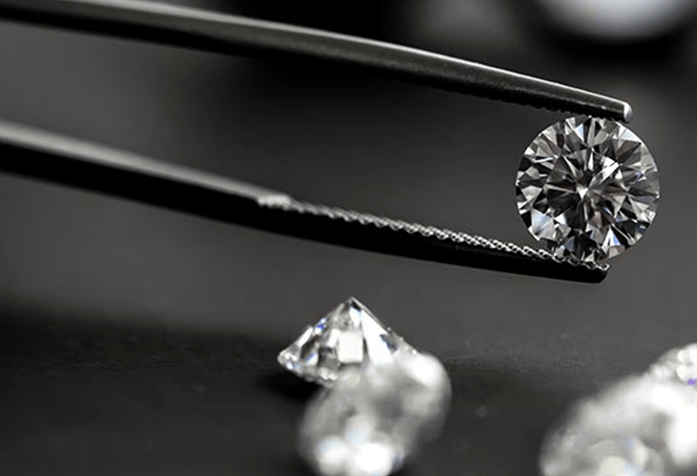CUT, TYPE & COLOUR and CLARITY
CUT
The shape or proportions of a diamond.
A rough natural diamond is turned into a polished diamond by skilled craftsmen who aim to bring out the brilliance, shine and beauty in each and every one. This is done by cutting a diamond with fine symmetry, proportions and angles which make good use of light by allowing it to be dispersed and reflected from one facet to another. A well cut diamond will sparkle and glisten, and will reflect light in all directions to create a wonderful sparkle. Our best diamonds also take into consideration 'polish' & 'symmetry' qualities. See 'CUT' information on our 'Understanding the logo' page for more details.
TYPE
Natural or man made laboratory grown diamond.
The type of diamond differentiates between a natural diamond formed in the earths crust millions of years ago and that of one which is almost identical in its physical properties, but formed under controlled conditions in a scientific laboratory. Lab grown diamonds are regarded by some as more ethical for the environment and can be up to 70% cheaper than natural mined diamonds.
COLOUR
The shades of natural colour in a diamond.
Diamonds are generally colourless, near colourless or slightly yellow. A diamond which is completely colourless is more desirable, and therefore more expensive, than one which is near colourless or even slightly yellow. Diamonds are graded from D to F, which are colourless, G to J (near-colourless) and then up to Z which will appear from slightly yellow to yellow.
CLARITY
How clear a diamond is
Most diamonds will contain inclusions, flaws which naturally occurred when diamonds formed millions of years ago. Diamonds are rarely perfect, but the fewer inclusions, the more valuable the diamond will be. Most inclusions can't be seen by the naked eye meaning that they will not necessarily affect the beauty of your ring however the clarity of the diamond is worth considering.
